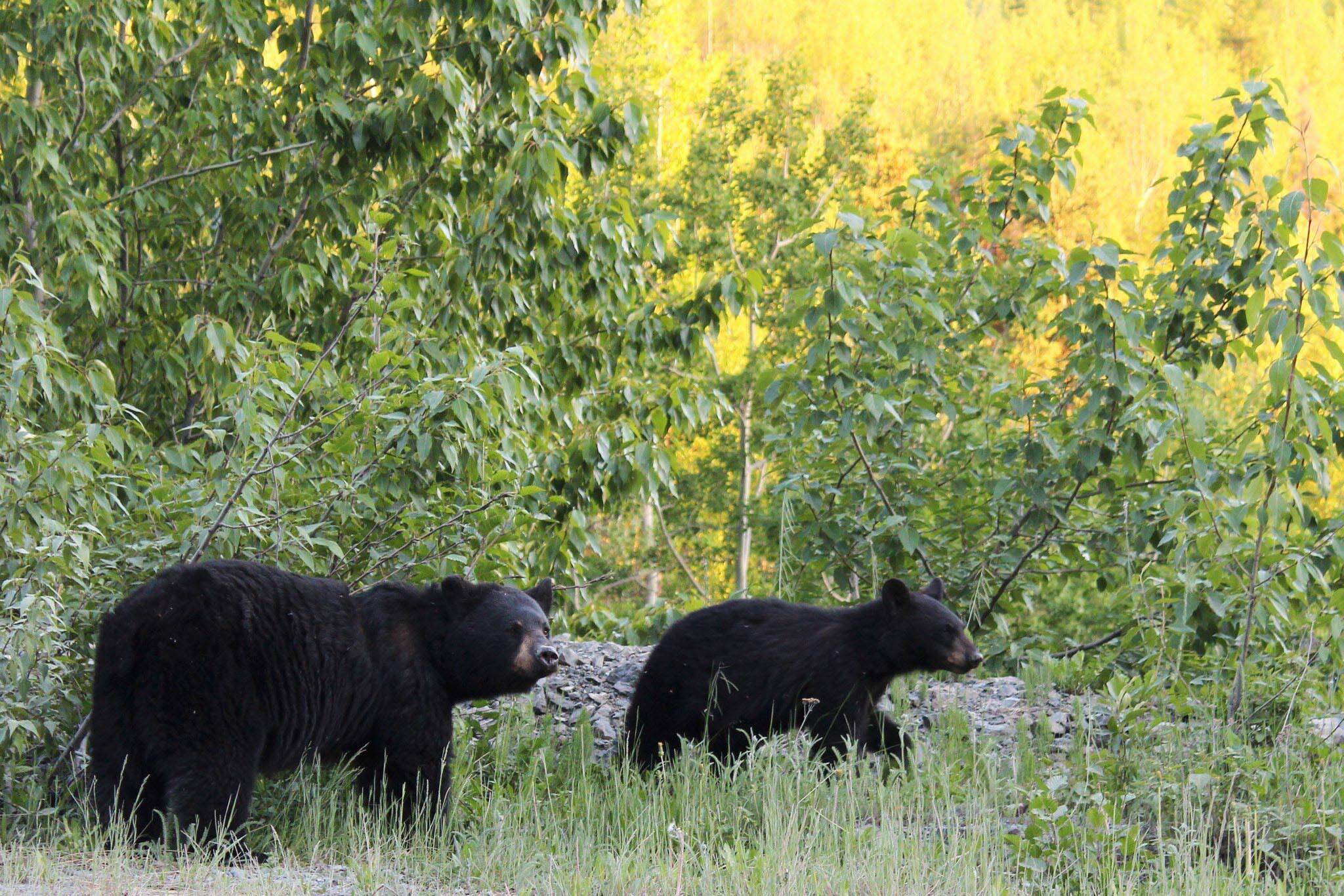Over the past month, you may have seen one of Alaska’s most iconic residents. The warm summer weather means black and brown bears are coming out of their long hibernations and beginning to prepare for their next one. During hibernation, bears rely on stores of fat accumulated during the summer to keep them alive throughout the winter. By the time they emerge from their dens in the summer, Alaska’s bears are hungry and on a tight schedule. If bears don’t amass enough fat stores by the end of summer to last through the winter, they won’t be able to remain in hibernation. They will instead wake to hunt in the winter months, which can sometimes result in starvation from a lack of prey. Bears work to avoid that fate throughout the summer by eating enough calories to build the necessary fat stores to hibernate through the winter.
Luckily for bears, they are equipped with the ultimate food finder: their nose. A bear’s incredible sense of smell can lead them to food sources from miles away and often right into our communities. As Alaska’s bears search for summer meals, they will be attracted to garbage, chicken coops, beehives, fruit trees, and anything else that smells good. As a result, a bear’s nose often leads them directly into conflict with humans.
In addition to attracting viewers, bears are critical components of the landscapes they inhabit. During salmon season, bears enrich the soil by dragging their catch through the forest to their favorite dinner spot. Their scat acts as a potent fertilizer due to the nature of their diet. That same scat also functions as a method of seed dispersal. When bears eat fruit, the seeds do not undergo digestion and instead pass out of the bear into different parts of the ecosystem, spreading plant growth to new locations. Bears also keep prey populations like moose and caribou in check, which prevents plant life from being over-grazed and riverbanks from being eroded by hooves.
Bears are essential to the health and stability of the environment we all love and depend on, but they also benefit Alaska in other ways. For example, every year, the Kenai Peninsula and Southcentral Alaska draw people to Alaska in hopes they might see a bear. In 2019, a study found that bear tourism brings in an estimated $34 million in total sales and $19 million to Southcentral Alaska’s economy alone.
Bears do so much for us without even trying, but that doesn’t mean our relationship with them isn’t complex. Hungry bears and hungry bears with cubs can be unpredictable and potentially dangerous, especially if they’ve been lured to someone’s property by a potential food source. In these situations, bears can be a threat to people and people to bears.
Defenders of Wildlife recognizes the importance of keeping both the humans and bears of Alaska safe from one another, which is why we have initiated several approaches to improving bear coexistence within the state. One of these approaches is offering an electric fence subsidy program on the Kenai Peninsula, which has recently expanded to Southeast Alaska. If you live or own property in either of these locations, Defenders of Wildlife’s Electric Fence Incentive Program can help you develop and pay for an electric fence that will keep bears out of what brought them to your door.
Defenders of Wildlife also works with Resurrection Bay Conservation Alliance to acquire and distribute bear-resistant trash cans in Seward. The last shipment was a massive success, with all 141 cans distributed in less than two weeks and 39 Seward residents added to the waitlist for the next shipment.
Other successes include working with state agencies to install food storage lockers in high bear- and human-use areas on the Kenai Peninsula and a recent grant approval from the U.S. Department of Agriculture to expand Defenders’ coexistence strategies into southeast Alaska, including our Electric Fence Incentive Program. These expansions were made possible in part by tribes and other Alaskans’ participation and interest in these programs. The outpouring of excitement for bear coexistence in Alaska makes it possible to advance strategies to protect people and bears, so that our two species can continue to safely share Alaska’s unique landscapes.
In partnership with Alaska Department of Fish and Game, Defenders will be hosting four upcoming Bear Safety workshops on the Kenai Peninsula between 6-8 p.m., including workshops on July 20 at Soldotna Public Library and July 22 at Seward Public Library and Museum. We hope to see you there!
For more information you can go to www.defenders.org/got-grizzlies or email alaskadefenders@defenders.org.
Isabel Grant is finishing up her Masters’ degree in Conservation Medicine at Tufts University and is working in Alaska with Defenders of Wildlife, an organization dedicated to the protection of all native animals and plants in their natural communities.

